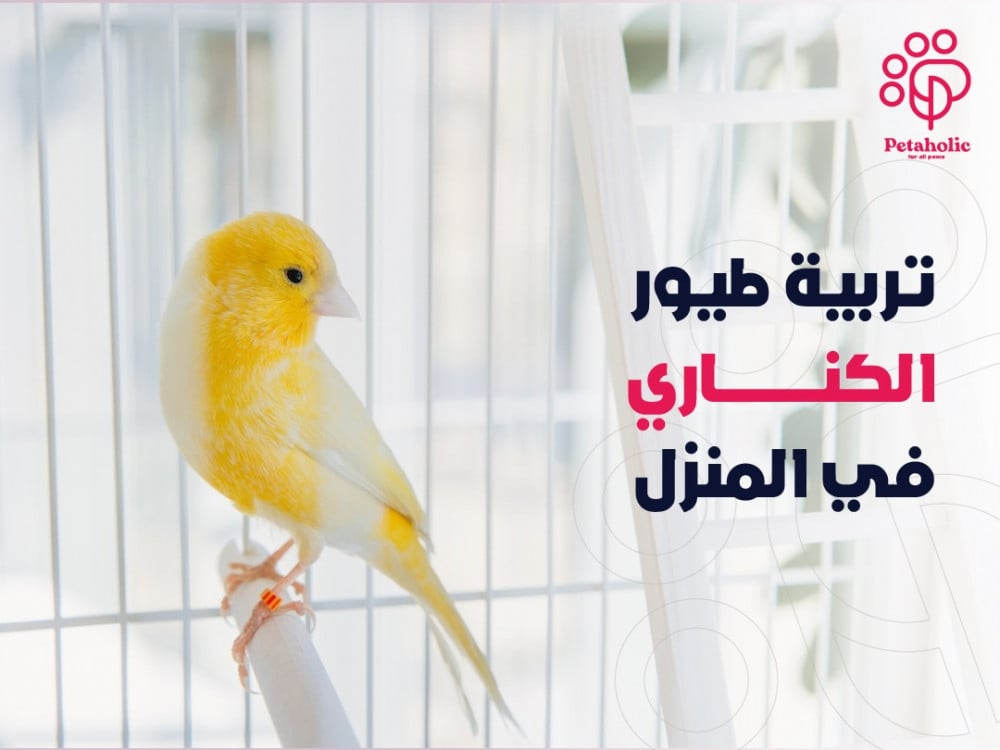
Canaries are actually a type of ornamental bird native to the Canary Islands. They've been kept in homes for over 500 years, and that's because these happy, intelligent little singers are some of the easiest pets to raise. Its small size and naturalness allow it to fit into almost any home. Therefore, we present to you a guide to raising canary birds at home for beginners. At Petaholic, we have also provided you with all the necessary supplies to provide the perfect life for your birds.
What is the appropriate environment in order to properly breed canaries at home?
Here are some steps that you can follow in raising canaries at home:
the cage
When purchasing a cage for your canary, keep the following in mind. Unlike birds that can climb around their homes in the wild, canaries exercise by flying from perch to perch in their natural habitat. Therefore, your canary will require a house that is larger than its height, so you need to get the largest cage possible. A spacious home with plenty of space to fly, sit and sleep is ideal.
You may want to hang your canary's cage or put it on a cage stand, but either way, make sure the room you put it in is draft-free, away from heating or air conditioning vents, and not in direct sunlight; Close to the window is the best. The cage cover will allow your canary to get the rest it needs. Remember that birds wake up at sunrise and sleep at sunset.
Proper lighting for breeding canaries at home
In their natural habitat, canaries get 10 to 12 hours of bright light. Your canary will need the same thing in your home, requiring exposure to ultraviolet light on a daily basis to prevent calcium and vitamin D deficiency, which are vitamins and minerals that deficiencies can lead to a myriad of health problems. Also, depriving the canary of ultraviolet radiation will cause it to suffer from color blindness. In addition, sunlight will help him eliminate abnormal behavior, such as destructive feather disorders and phobias.
roosts;
Birds are not supposed to perch the same diameter as a tree branch or perch. Your canary's cage should have a variety of perch sizes to allow its feet proper exercise. One of the perches should also be covered with sandpaper to help trim your birds' nails. Not only will your canary need the perch that comes with the cage, but it will also need perches and branches that will provide an uneven surface. You can buy these branches or use natural branches like the ones we offer at Petaholic. If you are using natural branches you will need to replace them more frequently. The canary's perch size shouldn't be too thin or too thick, just their feet need to comfortably encircle the perch.
For the best natural twigs for your canaries, we recommend:
What are the basics of proper nutrition for canary birds for a healthy and balanced life?
In order to raise healthy canaries at home, you must give your canary a well-balanced diet if you want it to live a long and happy life. Here are the most important basics of proper nutrition:
Basic diet
Fresh canary seed mix should always be available. Check the bowl twice a day, and don't be fooled by the empty husks he'll leave on the plate. Blow in the litter, stir and fill his bowl as needed, and clean and refill his dishes daily.
protein
Protein is a very important part of a canary's diet (about 12%). Since canaries feed primarily on seeds rather than insects, their protein is found in grasses and rapeseed. However, the canary must supplement its diet with egg protein. Your canary will benefit by being offered a hard-boiled, cooled, mashed egg every day in a separate cup, which you can mix with a little dry soft bread crumbs so it's not too soft. Remove leftovers from the cage an hour after serving.
daily power
A healthy mix of vegetables cut into bite-sized pieces should be served daily, and removed within an hour or two. As for fruits, they should be considered as rewards and offered as little as possible. Some canaries may like grated carrots, others may prefer romaine lettuce, so give your bird some variety. However, ghee can be a common problem for canaries, which is why mashed potatoes, peanut butter and human foods should not be offered.
Vitamin, mineral and amino acid supplement
In the wild, a bird is free to meet all of its nutritional requirements. A good example of the need to add vitamins is the lack of vitamin A in their diet. This fat-soluble vitamin is not actually found in seeds, so you must provide other sources of it. While egg yolks and fresh vegetables are rich in vitamin A, your canary may not accept these foods or eat enough of them. To make sure your canary gets the vitamins its body needs, we recommend adding a high quality vitamin powder. You can add it on top of his salad or sprinkle it on millet. A liquid vitamin can also be used instead of a powdered one if your canary ignores the vitamin-rich foods you offer.
cuttlefish bones
Cuttlefish bone is an ideal way to provide your canary with calcium, phosphorus and other minerals necessary to keep it in optimal health. Change cuttlefish bones every two months, as they are very porous and absorb odors in the bird's environment, such as smoke and cooking fumes. If your canary shows no interest in cuttlefish bone, grind it into a powder and mix it into its favorite salad or dish.
iodine stone
This stone provides iodine, copper and many other minerals in small amounts not not found in a basic seed diet. The iodine stone is fun to chew and delicious, too.
millet bunches;
Millet is the only food available to birds that you would normally find in the wild. When you bring home your canaries, you should provide them with bunches of millet daily. This may be the only thing your canary will feel comfortable eating at first. Once your bird adjusts to its new home, it's okay to offer it once or twice a week.
rewards
Packaged treats provide your bird with the variety it craves and the behavioral requirements it needs, such as foraging. These treats are like packaged seeds, honey sticks, egg crackers, and millet clusters.
Of the complete, healthy and balanced foods for raising canaries at home:
In the end, you will find that there is nothing easier than raising and caring for canaries at home , as they are small, fluffy, gentle and undemanding creatures, who take pleasure in the simplest things. By following the instructions in this guide, you will be able to provide the perfect life for your birds and have a friend for life. You can also buy all the supplies to achieve this goal from Petaholic at the best prices, delivered to your doorstep.
You may also be interested:

